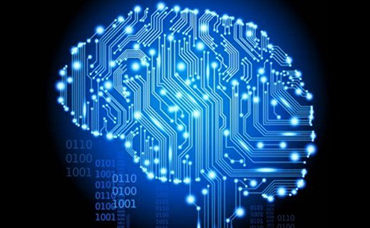Inside H&R Block’s Decision to Augment Tax Intelligence with IBM Watson

(Source: IBM)
As tax season rears its hideous head, the 11 million U.S. taxpayers who annually schlep to an H&R Block office and sit down with an agent to prepare their tax returns now have the power of the IBM Watson supercomputer – the one that won a $1 million-dollar Jeopardy! tournament – tracking down all (legal) means of minimizing their tax bites.
In the largest consumer-facing implementation of Watson AI to date, 70,000 agents at H&R Block’s 10,000 retail outlets will have access to Watson cognitive computing in the cloud to complete their clients’ taxes and seek deductions, exemptions and credits. The process that led 62-year-old H&R Block to embrace supercomputing and AI began two years ago when company president and CEO William Cobb challenged a group of senior managers to “reinvent” tax preparation.
According to George Guastello, VP of client experience, H&R Block didn’t seek greater efficiencies nor labor reduction from Watson. Instead, the company wanted to imbue their tax professionals with the knowledge and adroitness of a staff veteran who’s worked on tax returns for 40 years.
 “We looked at others,” Guastello told EnterpriseTech, “…but what made the difference is Watson’s vision for this technology. The other companies in this space call it artificial intelligence, but Watson and IBM call it ‘augmented intelligence’ – human and machine working together and improving decision making. You see it in the industries where (IBM has) deployed it. It’s not about replacing the individual, it’s about making the individual smarter; it’s about the transferring of information and knowledge.”
“We looked at others,” Guastello told EnterpriseTech, “…but what made the difference is Watson’s vision for this technology. The other companies in this space call it artificial intelligence, but Watson and IBM call it ‘augmented intelligence’ – human and machine working together and improving decision making. You see it in the industries where (IBM has) deployed it. It’s not about replacing the individual, it’s about making the individual smarter; it’s about the transferring of information and knowledge.”
Key to augmenting the intelligence of Block staffers is Watson’s natural language processing capabilities, which allow non-technical tax agents to use ordinary vocabulary to cull information and insights from the Watson knowledge base, comprised of the U.S. tax code, hundreds of pages of H&R Block training materials and the experience Block has acquired filing 720 million returns over the past 62 years in helping to preserve the bank accounts and sanity of taxpayers.
Most H&R Block customers take their tax information to a retail outlet and fill out their tax returns with an agent in real time. The agent asks questions of the customer that could have bearing on tax liability; based on the taxpayers’ statements the agent then asks Watson questions that, it’s hoped, uncover advantages in the tax code. Different scenarios are run – say, whether a married couple should file jointly or individually – and the end results compared. It’s the accessibility of Watson via its natural language capability that is at the core of H&R Block’s AI strategy.
Watson captured the TV viewing public’s imagination in 2011 when it competed on the popular Jeopardy! game show. The system was developed by IBM’s DeepQA project with the specific intent of competing on the show, during which Watson had access to 200 million pages of structured and unstructured content consuming 4Tb of disk storage, including the full text of Wikipedia. In the end, Watson took on three Jeopardy! champions and beat them all.
Tax preparation is a lot less fun. It involves massive volumes of tax data and detail, including the 74,000-page federal tax code and thousands of yearly tax law changes. As part of the first phase of the collaboration, H&R Block and IBM development teams trained Watson in the language of taxes, applying the technology to the thousands of questions and topics discussed during the return filing process. The solution uses IBM Cloud-based Watson services to understand context, interpret intent and draw connections between clients' statements and relevant areas of their tax return.
Guastello said clients can follow along with the tax professional on a dedicated client companion screen that displays focus areas for deductions, making the preparation process more engaging and transparent.
He said Block and IBM began developing custom algorithms and APIs for Watson nine months ago, and the Watson/H&R Block pilot went live in September. Watson's initial training was validated by Block tax experts and the initial corpus will expand over time through each subsequent tax season.
"IBM has shown how complex, data-rich industries, such as healthcare, retail and education, are being transformed through the use of Watson. Now with H&R Block, we're applying the power of cognitive computing in an entirely new way that everyone can relate to and benefit from," said David Kenny, senior vice president, IBM Watson and Cloud Platform.
Watson is based on IBM DeepQA software and the Apache Unstructured Information Management Architecture framework. It is written in multiple languages, including Java, C++, and Prolog, and runs on the SUSE Linux Enterprise Server 11 operating system using the Apache Hadoop framework. On the hardware side, the system integrates massively parallel POWER7 processors, which, combined with DeepQA technology, it uses to generate hypotheses, gather massive evidence, and analyze data. Watson employs a cluster of 90 IBM Power 750 servers, each of which uses a 3.5 GHz POWER7 eight-core processor, with four threads per core. In total, according to IBM, the system has 2,880 POWER7 processor threads and 16 terabytes of RAM and can process 500 gigabytes, the equivalent of a million books, per second.
Tax preparation necessarily involves highly sensitive financial data. Guastello said that although Block’s Watson capability is cloud-based, no individual tax data goes out to the cloud. The tax questions that are asked of the system are not associated with any individual taxpayer. Sensitive data remains within Block’s on-prem data center under seven layers of security.
“We don’t share any personal identifiable information to the cloud or the IBM servers,” he said, “everything is anonymized and all information is then proprietary to Block and not shared externally.”
H&R Block said mixing human tax return professionals with AI is a first for the industry.
"We are introducing something this tax season that is totally new, and is in fact, a first in the tax preparation category," said Cobb, Block’s president and CEO. "By combining the human expertise, knowledge and judgment of our tax professionals with the cutting-edge cognitive computing power of Watson, we are creating a future where our clients will benefit from an enhanced experience and our tax pros will have the latest technology to help them ensure every deduction and credit is found. This partnership with Watson means we can leverage the best technology available to help our clients get their taxes done."










